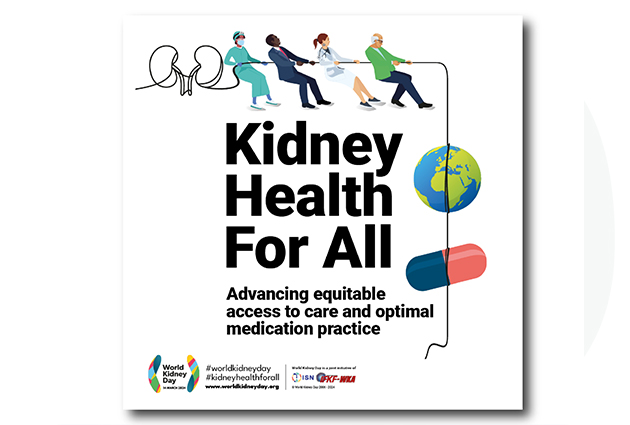A Ray of Light for People Living With Chronic Kidney Disease: A Promising Digital Physical Activity Intervention
ISN-ACT Global Trials Focus editorial team member Megan Borkum summarizes the design and outcomes of one of the ISN-ACT Global Trials Focus’s latest trial selections.
Read all global trial selections from the ISN-ACT initiative here. The “trial of the month” is available in several languages. In addition, selected clinical trials are demystified for the layperson.
Evaluating the effect of a digital health intervention to enhance physical activity in people with chronic kidney disease (Kidney BEAM): a multicentre, randomized controlled trial in the UK
Greenwood et al. Lancet Digit Health 2024
Summary
The single-blind Kidney BEAM study investigated the impact of a 12-week physical activity digital health intervention on health-related quality of life.
Adult participants with chronic kidney disease (CKD) from 11 UK sites were enrolled. A total of 340 participants (mean age 53.8 years, 46% female, 75% White, median creatinine 159umol/L) were randomly assigned to either the Kidney BEAM intervention (n=173) or the waitlist control (n=167).
The intervention, led by trained kidney-specific exercise professionals, involved moderate-intensity aerobic and resistance exercise sessions with a brief educational element. A physiotherapist assistant, skilled in motivational interviewing, utilized phone calls or emails to motivate participants to reach their goals.
At 12 weeks, the intervention group demonstrated a significant improvement in the patient-reported Kidney Disease Quality of Life Short Form version 1.3 Mental Component Summary (KDQoL-SF1.3 MCS) score (from mean 44.6 AU [SD 10.8] at baseline to 47.0 AU [10.6] at 12 weeks) compared to the control group (from 46.1 AU [10·5] to 45.0 AU [10.1]), with a between-group difference of 3.1 AU (95% CI 1.8-4.4; P<0.0001). In the intervention arm, the median adherence rate was 63% (IQR 38-92), involving a median of 44 minutes/week of structured physical activity.
Of the secondary outcomes, there was a significant improvement at 12 weeks in PAM-13 patient activation score (p<0.0001) and the 60-second sit-to-stand test (remotely conducted) of physical function (p<0.0001) in the Kidney BEAM group compared with the control group. There were no significant between-group differences at 12 weeks for Work and Social Adjustment Score, EQ-5D-5L clinical utility score, Global Physical Activity Questionnaire measures, fatigue (Chalder Fatigue Scale score), and anxiety and depression (PHQ-4 score). Median adherence to education sessions was 50% (8-83). No serious adverse effects related to the trial were reported.
Commentary
This work contributes to the growing body of evidence supporting the benefits of physical activity interventions in managing CKD. Kidney BEAM offers live and on-demand physical sessions, educational blogs and videos, and peer support.
The novelty of this trial lies in the feasibility and benefits demonstrated by a digital intervention versus traditional, in-person exercise training. Cost-effectiveness and patient experience data, along with 6-month follow-up results, are anticipated in subsequent publications.
Given the propensity of CKD patients towards physical inactivity, frailty, and sarcopenia, this trial suggests that digital interventions, particularly when exercise professionals are not routinely part of kidney care teams, offer a pragmatic and promising alternative to enhance access to rehabilitation care.
Nevertheless, digital interventions assessing mental health-related quality of life in larger, more diverse groups over a longer period and assessing if motivation and adherence are sustained are required to confirm these findings.










